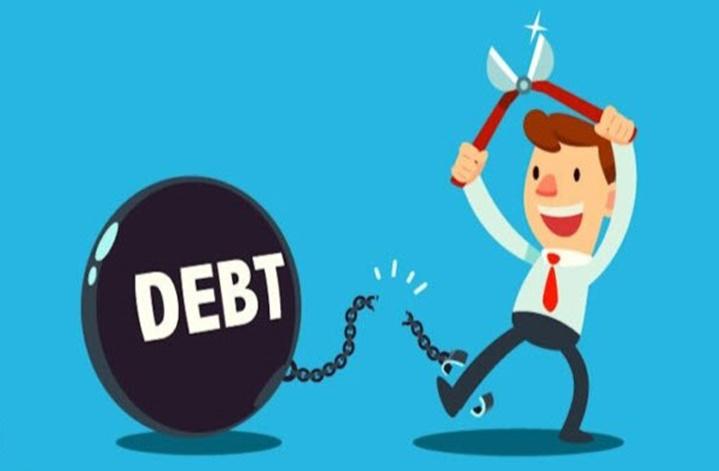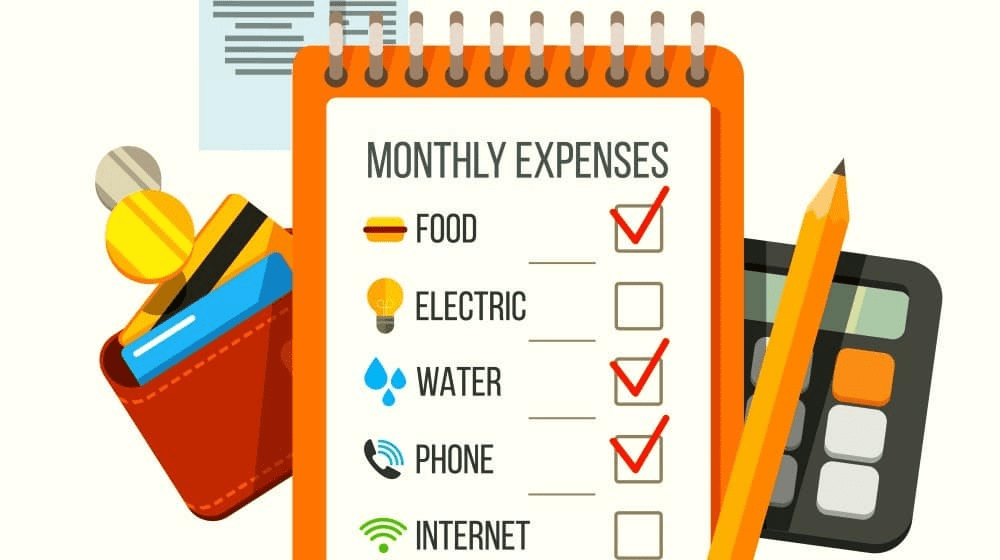From Debt to Financial Freedom: My Expert
Guide to Transforming Your Finances!

Understanding Your Current Financial Situation
Before embarking on a journey towards financial freedom, it is crucial to have a clear understanding of your current financial situation. This involves taking a comprehensive look at your income, expenses, and debts. Start by gathering all your financial documents, such as bank statements, credit card bills, and loan statements. This will give you a complete picture of where you stand financially.
Once you have gathered the necessary information, it’s time to assess your financial health. Calculate your total income and compare it to your expenses. Are you spending more than you earn? Are there any unnecessary expenses that can be cut down? Understanding your cash flow is essential in identifying areas where you can make adjustments to improve your financial situation. $220/day – Shopify Assistant Job
Another aspect to consider is your debt load. List down all your debts, including credit cards, student loans, and mortgages. Take note of the interest rates and minimum monthly payments for each debt. This will help you prioritize which debts to tackle first.
Setting Financial Goals for Debt Elimination and Financial Freedom
Now that you have a clear understanding of your current financial situation, it’s time to set goals for debt elimination and achieving financial freedom. Setting specific, measurable, achievable, relevant, and time-bound (SMART) goals will help you stay focused and motivated throughout your journey.
Start by identifying your short-term and long-term financial goals. Short-term goals could include paying off a specific credit card or reducing your overall debt by a certain percentage within a year. Long-term goals may involve saving for retirement, purchasing a home, or starting your own business.
Once you have established your goals, break them down into smaller milestones. For example, if your goal is to pay off $10,000 in credit card debt within a year, you can set monthly targets to track your progress. Regularly reviewing and adjusting your goals will ensure that they remain relevant and achievable.
Creating a Budget and Tracking Expenses

A budget is a crucial tool for managing your finances effectively. It helps you allocate your income towards different expenses and savings goals. Start by listing all your sources of income, including your salary, side hustles, and any passive income. Next, categorize your expenses into fixed (mortgage/rent, utilities) and variable (groceries, entertainment) expenses.
Once you have a clear picture of your income and expenses, it’s time to create a budget. Allocate a specific amount to each expense category and aim to save a certain percentage of your income. It’s important to be realistic when creating a budget, taking into account your current financial obligations and goals.
Tracking your expenses is equally important as creating a budget. This will help you identify areas where you may be overspending and make necessary adjustments. There are various budgeting apps available that can help you track your expenses effortlessly. Regularly reviewing your budget and tracking your expenses will ensure that you stay on track toward your financial goals. $175/day for uploading TikTok
Strategies for Debt Repayment
Debt repayment is a critical step towards achieving financial freedom. There are several strategies you can employ to pay off your debts efficiently. One popular method is the debt avalanche method, where you focus on paying off debts with the highest interest rates first while making minimum payments on other debts. This strategy saves you money on interest payments in the long run.
Another strategy is the debt snowball method. With this approach, you prioritize paying off the smallest debt first while making minimum payments on other debts. This method provides a psychological boost as you quickly eliminate smaller debts, creating momentum and motivation to tackle larger debts.
Whichever method you choose, it’s important to stay disciplined and committed to your debt repayment plan. Consider increasing your monthly debt payments by cutting down on discretionary expenses or finding ways to increase your income. Celebrate each milestone along the way to keep yourself motivated and engaged.
Building an Emergency Fund
Building an emergency fund is an essential step in securing your financial future. Life is full of unexpected events, and having a financial safety net will protect you from falling into debt during times of crisis. Aim to save at least three to six months’ worth of living expenses in your emergency fund.
Start by setting aside a fixed amount from each paycheck towards your emergency fund. Treat it as a non-negotiable expense, just like any other bill. Consider automating your savings by setting up automatic transfers to your emergency fund. This way, you won’t have to rely on willpower alone to save consistently.
Remember, an emergency fund is not meant for discretionary spending or luxury purchases. It is specifically for unexpected expenses such as medical emergencies, car repairs, or job loss. By having a well-funded emergency fund, you will gain peace of mind and be better equipped to handle any financial challenges that come your way.
Saving and Investing for the Future

Achieving financial freedom goes beyond debt elimination. It also involves saving and investing for your future financial goals. Once you have paid off your debts and built an emergency fund, it’s time to focus on growing your wealth through saving and investing.
Start by setting savings goals for different objectives, such as retirement, education, or a down payment for a house. Aim to save a certain percentage of your income each month towards these goals. Consider opening separate savings accounts for each objective to keep your savings organized.
In addition to saving, investing is a powerful tool for growing your wealth. Research different investment options, such as stocks, bonds, mutual funds, or real estate, and determine which ones align with your risk tolerance and financial goals. Consider seeking advice from a financial advisor to help you make informed investment decisions. $850 per week for watching movies on Netflix
Remember, investing is a long-term strategy, and it’s important to stay patient and not let short-term market fluctuations deter you from your goals. Regularly review and rebalance your investment portfolio to ensure it remains aligned with your risk tolerance and financial objectives.
Maximizing Income and Finding Additional Sources of Revenue
Increasing your income is an effective way to accelerate your journey towards financial freedom. Start by exploring opportunities for a raise or promotion within your current job. Update your resume and consider acquiring new skills or certifications that can enhance your marketability.
If a raise or promotion is not feasible, consider finding additional sources of revenue through side hustles or freelancing. Utilize your skills and interests to identify opportunities for earning extra income. This could involve starting a small business, offering consulting services, or monetizing a hobby.
In today’s digital age, there are numerous online platforms that connect freelancers with clients seeking specific services. Explore platforms such as Upwork, Fiverr, or TaskRabbit to find freelance opportunities that align with your skills and interests.
Remember, increasing your income requires dedication and effort. It may involve working extra hours or sacrificing leisure time in the short term. However, the additional income generated can significantly impact your financial situation and expedite your journey towards financial freedom.
Changing Spending Habits and Adopting a Frugal Lifestyle

To achieve financial freedom, it’s important to change your spending habits and adopt a frugal lifestyle. Evaluate your current spending patterns and identify areas where you can cut back without sacrificing your quality of life.
Start by distinguishing between needs and wants. Focus on meeting your basic needs first, such as food, shelter, and healthcare. Avoid impulsive purchases and make a habit of researching and comparing prices before making any significant purchases.
Consider adopting frugal habits such as meal planning, buying in bulk, and utilizing coupons or discounts. Look for free or low-cost entertainment options, such as exploring nature, borrowing books from the library, or attending community events. By making conscious decisions about your spending, you can significantly reduce your expenses and increase your savings. Write Product Reviews – $40 a review
Additionally, consider practicing mindful spending. Before making any purchase, ask yourself if it aligns with your financial goals and if it will bring you long-term satisfaction. Delaying gratification and focusing on your long-term financial well-being will help you stay on track towards achieving financial freedom.
Seeking Professional Help and Resources for Financial Guidance
Navigating the complexities of personal finance can be overwhelming. If you find yourself struggling to make progress or need expert guidance, don’t hesitate to seek professional help. Financial advisors can provide personalized advice and strategies tailored to your specific financial goals and circumstances.
When choosing a financial advisor, look for someone who is qualified, licensed, and has a track record of helping clients achieve their financial goals. Consider asking for recommendations from friends, family, or colleagues who have had positive experiences with financial advisors. How to make $1,000 per day on complete auto-pilot 24/7
In addition to professional help, there are also numerous resources available to enhance your financial knowledge. Books, podcasts, and online courses can provide valuable insights and practical tips for managing your finances effectively. Educate yourself about personal finance topics such as budgeting, investing, and debt management to make informed decisions.
Remember, seeking professional help and utilizing available resources is a sign of strength, not weakness. It demonstrates your commitment to improving your financial well-being and achieving long-term financial freedom.
Celebrating Milestones and Staying Motivated
As you progress on your journey towards financial freedom, it’s important to celebrate milestones and stay motivated. Achieving financial goals requires discipline and perseverance, and acknowledging your accomplishments along the way will keep you motivated to continue making progress.
Set mini-rewards for yourself as you achieve each milestone. It could be treating yourself to a small indulgence or taking a short vacation to recharge. Rewarding yourself in a responsible manner will reinforce positive financial habits and help you stay focused on your long-term goals.
Additionally, surround yourself with like-minded individuals who share your financial aspirations. Join online communities or local groups focused on personal finance to connect with others who are on a similar journey. You can share your successes, seek advice, and find inspiration from others who have achieved financial freedom.
Lastly, regularly review your financial goals and remind yourself of the reasons why you embarked on this journey. Visualize the financial freedom you desire and the opportunities it will bring. By staying focused on your goals and maintaining a positive mindset, you will continue to make progress towards achieving financial freedom.
Conclusion
Transforming your finances from debt to financial freedom requires dedication, discipline, and a willingness to make changes. By understanding your current financial situation, setting clear goals, creating a budget, and adopting frugal habits, you can take control of your financial future.
Remember to celebrate milestones along the way, seek professional help when needed, and stay motivated by surrounding yourself with like-minded individuals. With perseverance and a commitment to your financial goals, you will ultimately achieve the financial freedom you desire.
Now is the time to take action and embark on your journey towards financial freedom. Start by assessing your current financial situation and setting SMART goals. Remember, every step you take brings you closer to the financial future you deserve.
